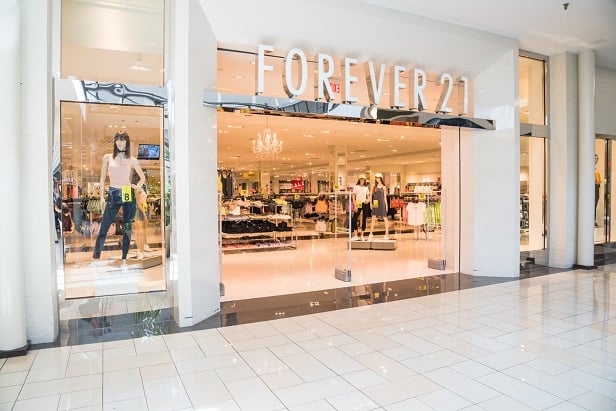LOS ANGELES—Forever 21's acquisition by two mall REITs and Authentic Brands Group has been finalized, weeks after the buying group and bankrupt retailer announced they had struck a deal.
Simon Property Group, Brookfield Property Partners and Authentic Brands Group are the buyers with ABG and Simon each owning 37.5%, and Brookfield owning 25% of the intellectual property and operating businesses.
Recommended For You
Want to continue reading?
Become a Free ALM Digital Reader.
Once you are an ALM Digital Member, you’ll receive:
- Breaking commercial real estate news and analysis, on-site and via our newsletters and custom alerts
- Educational webcasts, white papers, and ebooks from industry thought leaders
- Critical coverage of the property casualty insurance and financial advisory markets on our other ALM sites, PropertyCasualty360 and ThinkAdvisor
Already have an account? Sign In Now
*May exclude premium content© 2025 ALM Global, LLC, All Rights Reserved. Request academic re-use from www.copyright.com. All other uses, submit a request to [email protected]. For more information visit Asset & Logo Licensing.









